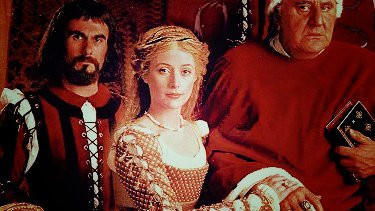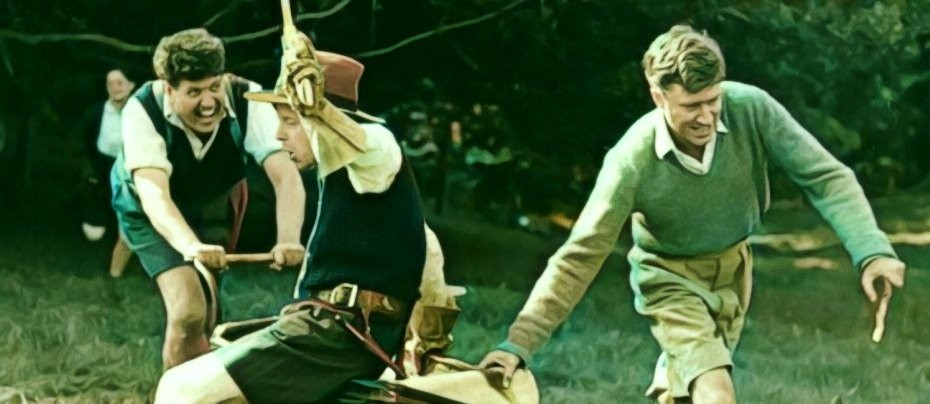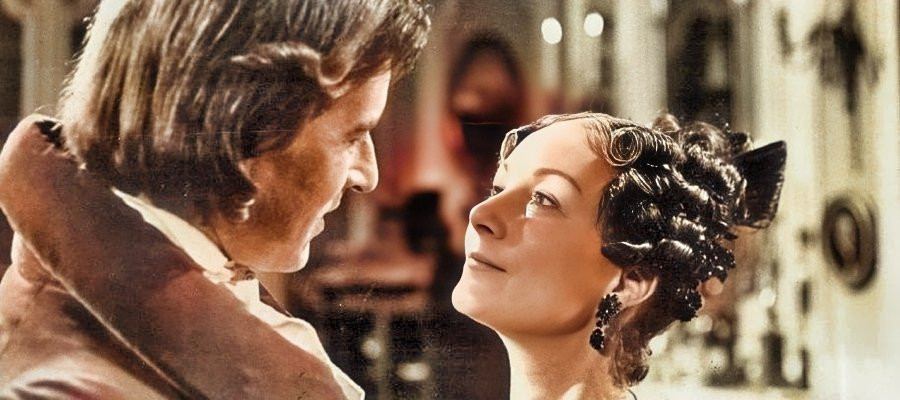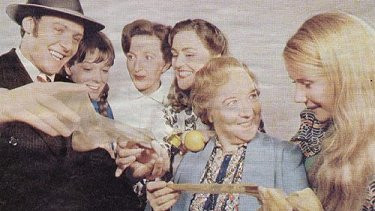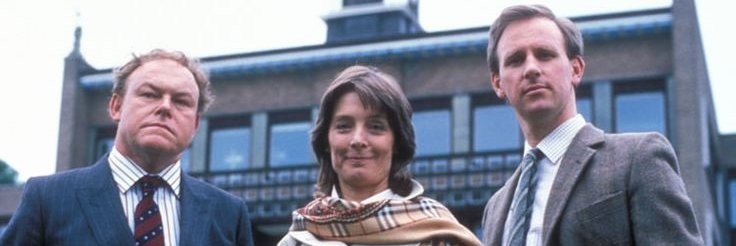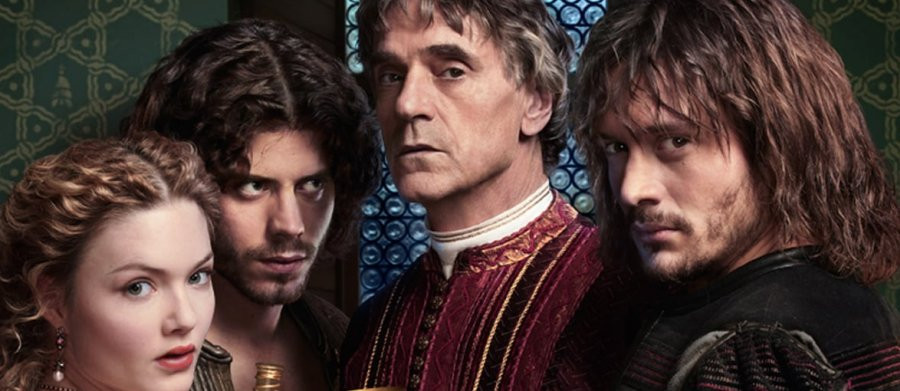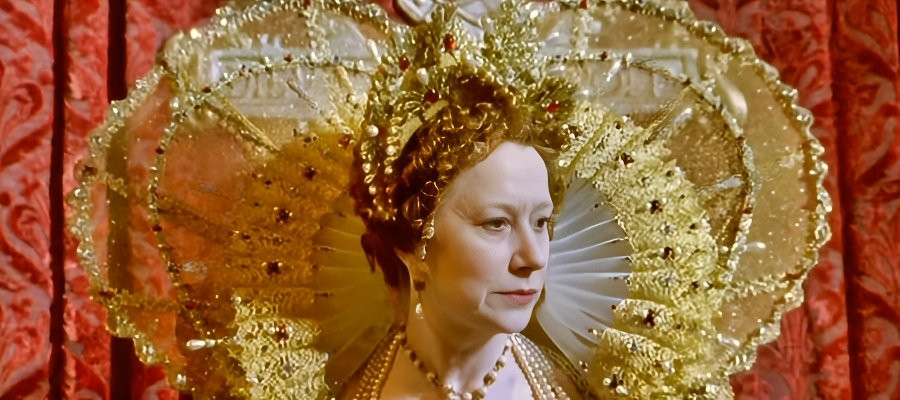
Elizabeth I
2005 - Uk UsaIt seems almost inevitable that Dame Helen Mirren should at some point star as Elizabeth I. If there was a role she was born to play it is surely the Virgin Queen. Of course the same might be said of Cate Blanchett, who got in first a few years earlier with a memorable performance in Elizabeth, a clever but historically illiterate feature film. Mirren therefore had to be content to play her in a two-part miniseries for HBO and the UK's Channel 4 titled simply, but still confusingly, Elizabeth I. It is sometimes easy to get the two projects and their leading performances mixed up. Another layer is added to the confusion by Mirren playing the other Queen Elizabeth, the one reigning at the time, Elizabeth II, in The Queen, a very successful feature film soon after. She was to go on to play another great historical female authority figure, the title role in Catherine the Great, another miniseries, some years later.
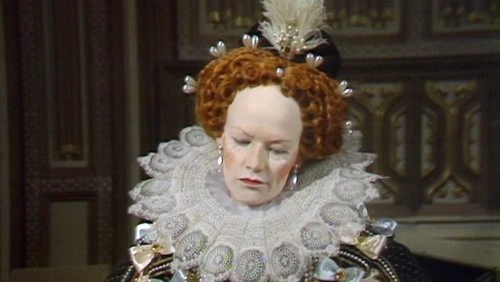
There is a danger that all these performances may be seen as following a definite "playbook" for female Monarchs as beleaguered Chief Executives. Both Mirren and Blanchett owe a great deal in their turn to what is perhaps the definitive portrayal of Elizabeth I by Glenda Jackson in Elizabeth R. In all three, and in most other portrayals, we are given the archetype of the strong minded woman struggling to succeed in a man's world. There was certainly that aspect to the historical Elizabeth, but there was much more to her than that and it is a pity we never really get behind the carefully constructed facade of the imperious daughter of Henry VIII who had her father's temper. We never engage with her faith, which was sincere and deep enough to endanger her life, or her strong friendships with other women barely mentioned in drama or literature. Nor do we explore the impact of a truly traumatic childhood that left her justifiably distrustful of men. The powerhouse performances of several of the greatest actresses in living memory have rather obscured the real Elizabeth.
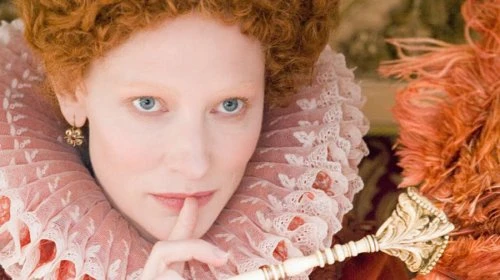
Yet they are still powerhouse performances, and which is the best in dramatic terms may be a matter of legitimate debate. Mirren is certainly a strong candidate even against Jackson and Blanchett. Which one chooses at any given time might well come down to which of the three one happened to watch most recently.
Mirren may well be the most historically accurate of the three, and the script and production of her project as a whole is certainly an improvement on Blanchett's in this respect. That said, Elizabeth I is far from free of major historical errors and dubious assumptions. Despite advances in historical research since it was made and a much smaller production budget, Elizabeth R still seems the most credible evocation of the historical Elizabeth's court.
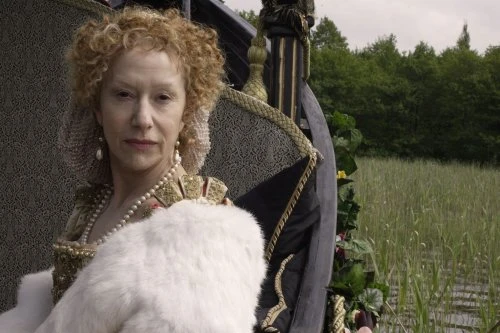
The first part of the miniseries covers several years around the dramatic highlight of Elizabeth's reign, the defeat of the first Spanish Armada in 1588, preceded by the judicial murder of Mary, Queen of Scots, and by the courtship of the Duke of Anjou, and incorporating the final phase of Elizabeth's strange relationship with Robert Dudley, Earl of Leicester. This is familiar ground in Elizabeth's story, so it is actually the second part, dedicated to the last few years of her life and reign, and incorporating her even stranger relationship with her "toy boy," Robert Devereux, Earl of Essex, and Leicester's stepson, which is in many ways the more intriguing because that period of her reign is less well known.
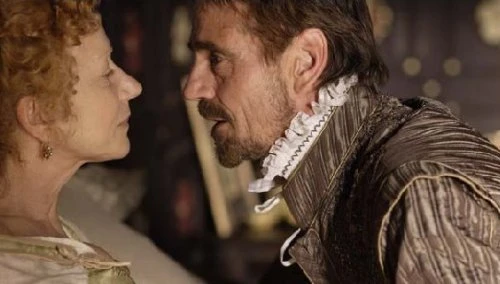
Jeremy Irons is the ideal actor to convey the ambiguity in Leicester's character and dealings with the Queen. Was there genuine mutual affection between Elizabeth and Leicester, or was he just an extremely ambitious opportunist? Or both? Or neither? Did Leicester himself really know? The miniseries takes up the story long after their formative years, when the two were to an extent thrown together by adversity, and after the suspicious death of his first wife, which many assumed was clearing the way for him to marry the Queen but which actually killed his chances of doing so as dead as the poor lady in question. It takes the daring position of implying his second wife, the Dowager Countess of Essex, mother of the Earl who would later succeed him as the object of the Queen's affections, was very much in his confidence in his double dealings with Elizabeth. Yet this is not inconsistent with the possibility that he retained genuine feelings for the Queen: an accomplished ladies' man like Leicester would have understood the importance of keeping his wife happy by making a display of trusting her. It may be that his motivation in marrying was solely his desire to produce an heir, always the principal obsession of a nobleman of the period, which the Queen was probably too old to guarantee at that point. Irons keeps everyone guessing, as Leicester himself did.
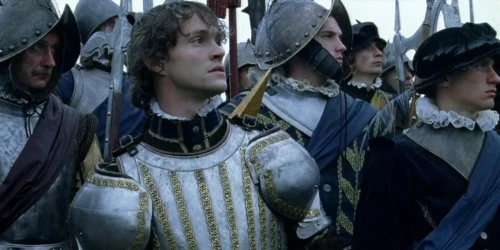
His Leicester is a seasoned player in the actual Game of Thrones, far more intelligent than he is portrayed in other productions, as the original had to be simply in order to survive, even if his abilities never quite matched his ambitions. Hugh Dancy, by contrast, plays Essex as an air headed pretty boy, completely out of his depth, which may be a little unfair. It is a nice touch that Essex is shown as having moments of uncertainty in spite of his high opinion of himself and in those moments he is at his most dangerous as he makes impulsive decisions in a vain effort to appear in control.
Both favourites are wholly outclassed when competing with Elizabeth's professional administrators, the difference being that Leicester realises and makes accommodations with them while Essex does not and ends up fatally isolated. In both cases, when finally forced to make definite choices, the statesman in Elizabeth always prevails over the woman and she goes with her most useful servants rather than the objects of her obsessions.
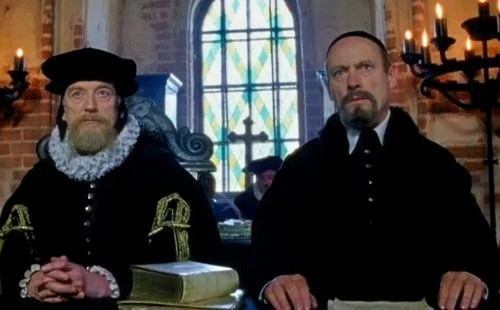
Ian McDiarmid (Senator, Chancellor, and Emperor Palpatine) and Toby Jones are perfectly cast as father and son William and Robert Cecil, in effect the founders of the British civil service. Even better is Patrick Malahide, wholly credible as Elizabeth's brilliant spymaster Sir Francis Walsingham. It is another clever touch that Jones, deferential and lacking in confidence despite his awareness of his superior intelligence, hints at a complex relationship with Essex when they were brought up together - the "nerd" who hates the popular "jock" but still wants to be him.
Barbara Flynn is a deliberately unromantic Mary, Queen of Scots, in Part One while Ewen Bremner is a far from obvious choice as her son, King James VI of Scotland, angling to be named as Elizabeth's heir in Part Two. It is a missed opportunity that more is not done with this particular subplot. A young Eddie Redmayne makes a big impression in an early supporting role as the Earl of Southampton, the sort of friend the Earl of Essex could well have done without.
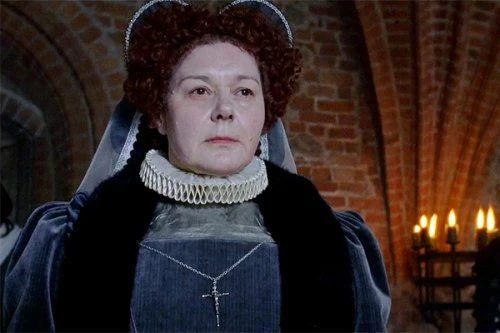
Principal filming took place in Lithuania, where a replica of the long gone Whitehall Palace was constructed with painstaking accuracy. The design departments in general deserve credit both for some nice attention to detail and for an overall sense of authenticity - many productions get one or the other but rarely both. There are some gruesome execution scenes, which now seem compulsory for projects set in this period - and this is of course, an HBO production - but happily the camera does not linger on them too much or make a big deal of them.
The whole production is self-consciously and deliberately classy, and was duly rewarded with a shelf full of Awards. Irons, who already had the "Triple Crown of Acting" (Emmy, Oscar, Tony) picked up another Emmy, as did Mirren - she already had two and was later to go on to the "Triple Crown" herself. However, it is a pity that Malahide, Jones, McDiarmid, and Dancy did not get greater recognition because ever since it has been hard to read about the real life people they played without thinking of them - perhaps a greater tribute to their craft than any Award.
Seen this show? How do you rate it?
Seen this show? How do you rate it?
Published on October 3rd, 2025. Written by John Winterson Richards for Television Heaven.





